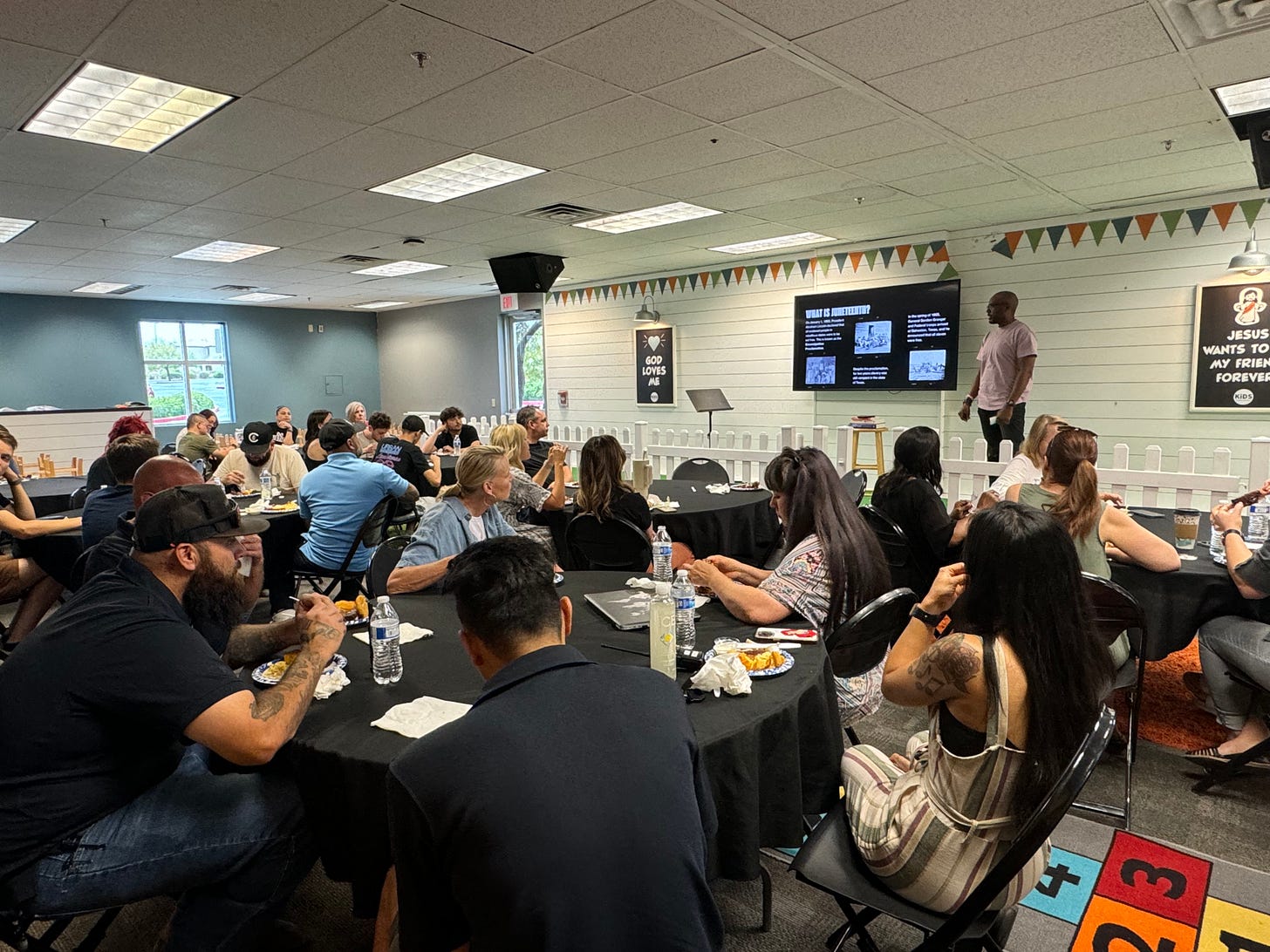Juneteenth in the Church: A Faith-Based Guide for Christian Leaders
Why understanding Juneteenth matters for church staff—and how Jesus leads us into hard, holy conversations with empathy and truth.
Curious about Juneteenth but unsure where it fits into your ministry? You’re not alone. This post is a safe, grace-filled invitation for Christian leaders to better understand Juneteenth and why it matters in the church.
I didn’t grow up learning about or celebrating Juneteenth. When it came to the national forefront a few years ago, I started to learn. I listened to stories, followed social media feeds, and watched documentaries to understand its significance.
If I’m honest, a lot of what I learned made me uncomfortable—but I sat in the discomfort, determined to gain understanding for a history and experience apart from my own.
That discomfort, learning, and understanding grew into empathy and compassion. Now, I guide church teams to explore how Jesus modeled a life that blends discipleship and diversity—with Juneteenth being one of many meaningful entry points.
Why?
Because we are called to serve.
We’re called to make disciples.
We’re called to love.
But how can we do that if we don’t have empathy and compassion for the pain someone is carrying?
How do we serve if we aren’t willing to listen to their true need?
How do we listen if we’re always quick to give advice or move past the hard stuff?
Some might argue that conversations around Juneteenth—or topics tied to cultural tension, historical wounds, or social complexity—don’t belong in church.
But if we are to model our lives after Jesus, we can’t shy away from the uncomfortable.
Throughout the Gospels, we find Jesus stepping directly into the tensions of His time:
He engaged the Samaritan woman at the well (John 4), breaking racial, religious, and gender norms to offer dignity and truth.
He called out injustice in the temple (Matthew 21:12–13), confronting systems that oppressed the poor and exploited the vulnerable.
He healed a Roman centurion’s servant (Luke 7:1–10), showing compassion even to those who represented an occupying and unjust regime.
Jesus didn’t avoid the cultural, social, or political barriers of His day. He stepped through them with truth, compassion, and empathy.
Juneteenth gives us that same opportunity.
It’s not just a historical date—it’s a window into the lived pain, resilience, and faith of generations. For the Church, understanding Juneteenth isn’t about politics. It’s about people. It’s about discipleship. And it’s about love.
If you’re a church leader who wants to lead with humility and compassion but isn’t sure where to start, I’d love to help. I offer staff trainings, small group facilitation, and consulting that create safe, grace-filled spaces for these hard and holy conversations.
You don’t have to get it perfect. You just have to be willing to get proximate.
Juneteenth invites us to listen, learn, and love more like Jesus.
If your church is ready to lean in—with grace and courage—I’d be honored to walk alongside you.
Let’s start the conversation.
Curiosity is an opportunity to grow.
If this helped you see Juneteenth in a new light, consider sharing it with someone walking the same road.






What a beautiful reflection and call to action. Really appreciate your stepping into this space.